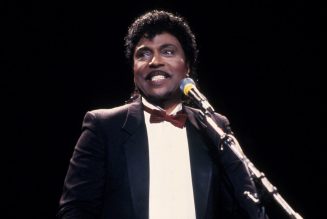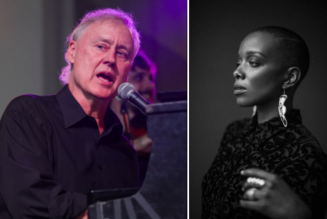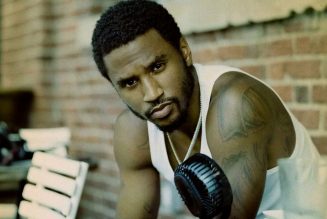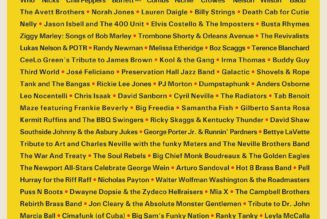
1. Machine Gun Kelly posts the best sales numbers and first No. 1 debut of his career with Tickets to My Downfall this week, his first full pop-punk album. What do you think the biggest reason is that his rock reinvention has been so successful?
Katie Atkinson: It feels like his sound finally caught up to his persona. MGK had brushes with crossover success in the past — like Camila Cabello duet “Bad Things,” his highest-peaking Hot 100 hit to date (No. 4), or his headline-grabbing battle with Eminem — but those moments were always shared with other, bigger names. And the thing casual observers might remember best about him is his tall, tattooed frame, looking like a modern-day Tommy Lee (he even portrayed the Motley Crue drummer in Netflix’s The Dirt biopic). This new era is all about Machine Gun Kelly coming into his own as an artist and a personality, and music fans obviously believe in this natural evolution.
Josh Glicksman: The biggest reason? The music is good! Of course there are a number of reasons why MGK is a fitting character for a rock reinvention, but none of it clicks without a number of headbanging tracks to boot. Tickets doesn’t often stray too far away from its core sonic foundations, but there’s really no need for it to do so. The formula works perfectly fine throughout. Short, punchy tracks that often provide a jolt and don’t stick around long enough for listeners to sit around wondering when the next one will come.
Becky Kaminsky: I think three key ingredients went into the success of Tickets to My Downfall: a legitimate veteran producer in Travis Barker, nostalgia for the turn-of-the-century pop-punk sound, and quality music. The album is good. Period.
Jason Lipshutz: Three little words for Machine Gun Kelly: the songs work! On paper, pivoting from hip-hop (the genre that is currently dominating mainstream music) to pop-punk (a genre that has been declining commercially for over a decade) would be a disastrous decision for any popular artist… but MGK sounds at home in an ecosystem that’s executive produced by Travis Barker. Over the past few months, the alt-rock radio play that MGK has received has swiftly moved from semi-ironic to lavishly devoted, all because the songs sound exquisite alongside Green Day, Blink-182 and Offspring classics. This was always a gamble, but my oh my, has it paid off.
Andrew Unterberger: A good chorus is a mighty thing, and 8-10 of them on one album can move mountains — or at least six digits’ worth of equivalent album units. Whatever cred Machine Gun Kelly does or doesn’t have as a dyed-in-the-wool rocker — and regardless of his musical history, can’t deny that he looks, talks and acts the part — he’s got the hooks, and that always matters more. Credit both to him and co-writer Nick Long (who also co-penned “I Think I’m Okay,” the excellent Yungblud collab on Hotel Diablo that served as a sort of TMTD dry run) for creating a 15-track pop-punk wallop stronger even than recent sets from most of MGK’s obvious heroes.
2. Rock has long found itself starved for artists that fit a traditional rock star role while also being logical fits for the 2020 mainstream. Is MGK that sort of modern star that rock and alternative has been searching for, or is he more of a feel-good throwback for fans of popular rock from around 20 years ago?
Katie Atkinson: This new sound is a great fit, but it’s definitely a throwback. Kelly’s penchant for leather and tattoos recalls the Sunset Strip rockers of the ’80s and ’90s, while the whining vocals and prominent snares of Downfall evoke the emo pop-punk of the 2000s. It’s a fun diversion — especially considering the bleak news cycle — but it’s probably not the forward-facing lifeline the genre so desperately needs.
Josh Glicksman: Why can’t it be both? There’s no doubt about it: Tickets to My Downfall evokes the best kind of nostalgia for turn of the century pop-punk. Plenty of that has to do with blink-182 drummer Travis Barker’s fingerprints being stamped all over the album, and some of it likely has to do with me yearning for anything that reminds me of a year other than this one. But anyone not ready to deem MGK a worthy rockstar after this album either hasn’t listened to it or is too stubborn to acknowledge one outside of rock’s golden age. He’s got the look, he’s got the sound, he’s got the personality. What more do you want?
Becky Kaminsky: If he continues with this sound on future albums, he can become the modern rock star missing from the musical landscape. The vibe is there: tattoos, party lifestyle, smoking hot girlfriend, etc. But his rap roots feel too recent for me to definitively say he’s the rock star we want and need right now.
Jason Lipshutz: Machine Gun Kelly is what alternative rock stardom looks like in 2020: he’s rap-adjacent, Hollywood-adjacent, famous enough to be part of a celebrity couple but unpredictable enough to keep fans guessing what his next career move might be. MGK could quickly lean into his newfound success and morph into a tattooed, guitar-toting god for a generation that needs a new Warped Tour; he could just as quickly move away from rock music and spend his time focused on Bird Box 2 or another rap beef. That recklessness is intoxicating, and part of the reason why he’s such a fascinating figure in modern music.
Andrew Unterberger: However he got here, his rock stardom feels pretty right for 2020 — not just because he has the songs, the fans and the general excitement, but because he’s glamorous without being unrelateable. That’s a balance rock has really struggled to strike in recent years, since most modern alt hitmakers (at least of the straight cis white male variety) don’t have the charisma or sense of danger of stars past, while most recent proponents of the sex, drugs and rock and roll lifestyle feel hopelessly out of date. MGK’s got the bad boy edge (and looks), the celebrity girlfriend, and the hedonistic lyrics, but he’s also got believable and loudly voiced struggles with substance abuse, personal demons and general insecurity that make it clear he’s not trying to turn his Tommy Lee performance or Travis Barker partnership into full-time Motley Crüe or Blink-182 cosplay.
3. The album notches three entires in the Hot 100’s top half this week — “My Ex’s Best Friend” with Blackbear (No. 28), “Forget Me Too” with Halsey (No. 44) and “Bloody Valentine” (No. 50). Which one do you see as being most likely to endure as the defining hit from this MGK era?
Katie Atkinson: I’d say “My Ex’s Best Friend” has the most staying power because it’s the best mix of MGK’s new pop-punk sound with his hip-hop history. And the chorus is hard to shake, which makes me think we’ll be hearing it for a while. His guest on the song, Blackbear, straddles very similar musical territory, so it makes sense that they would lend each other some cred in both genres.
Josh Glicksman: As my neighbors can likely attest, it’s “bloody valentine” for me by a landslide. If they haven’t heard me singing “I don’t do fake love, but I’ll take some from you toniiiiiiight,” then they’ve at least seen me putting on one hell of an air guitar concert in the window. Lead singles don’t always hit the mark, but MGK sure knocked his out of the ballpark this time around. It ages like a fine wine, and even though it’s currently the lowest of the three on the Hot 100, it has been looping “in my head, in my head” for weeks now.
Becky Kaminsky: Of the three, my personal favorite is “Bloody Valentine,” but “My Ex’s Best Friend” with Blackbear feels like it will endure through 2020. Blackbear’s “hot girl bummer” proved to be a hit, and “My Ex’s Best Friend” will build upon that popularity to close out the year.
Jason Lipshutz: “Bloody Valentine” is what sold me on this MGK era — just a perfectly crafted pop-punk single with some smart synthesizer flourishes and well-produced vocals. Frankly, it’s one of the best singles of 2020, and deserves to climb higher than No. 50 on the Hot 100.
Andrew Unterberger: All three are pretty explosive, but I’ll go with “Forget Me Too,” since I think Halsey — who’s found success with some recent guitar-rock explorations of her own — is an inspired choice of collaborator on the track. It could be just a music video or (socially distanced) award-show performance away from catching fire and crossing over to larger pop culture — like, say, another Blink-182-connected duet of Halsey’s from a few years back.
Travis Scott’s ‘Franchise’ at No. 1 on Hot 100, Machine Gun Kelly’s ‘Tickets to My Downfall’ Atop Billboard 200 | Billboard News
4. For those who are unconvinced that MGK’s new phase is legit from those hits, recommend one deeper cut off Tickets to My Downfall to try to persuade them.
Katie Atkinson: It’s not exactly a deep cut, given it has a music video starring his very public girlfriend Megan Fox, but “Drunk Face” is the track I can’t get out of my head. If Blink-182 released this song in 2000, it would have been in heavy rotation on TRL. I especially love the way the chorus seamlessly shifts from being about a drug habit to a love habit.
Josh Glicksman: My initial two picks here were “Kiss Kiss” and “Concert For Aliens,” but the former is the second track on the album and the latter was an official single, so I’m not sure either of those count. Instead, I’ll go with the iann dior-assisted “Nothing Inside.” The late-in-the-album cut is a victory lap for veterans and newcomers alike to the genre-blurring sound, with iann dior guesting and 24kGoldn landing a writing credit; and MGK and Travis Barker providing a steady guiding presence to carry the song over the finish line. It’s also a great example of MGK’s ability to flip an intoxicating hook into a sobering lyric in a moment’s notice, transitioning from the last chorus into a repetition of the line: “I’m running low on serotonin in these empty moments.”
Becky Kaminsky: As someone who still listens to The Used’s 2003 self-titled debut album and 2004’s In Love and Death on the regular, seeing Bert McCracken’s name on the deluxe tracklist was an absolute delight. “Bodybag,” featuring Yungblud and McCracken, really nails the pop-punk sound in my opinion, by working with one of the key artists who made the genre so popular in the early 2000s and bringing it to present day with Yungblud. Honorable mentions: “Jawbreaker” and “Hangover Cure.”
Jason Lipshutz: “Concert For Aliens” finds MGK trying on his best Tom DeLonge costume, down to the call-and-response melodies and nods to UFOs, and he pulls it off. If that’s not enough to convince you to check this album, there’s also a song, “All I Know,” in which he and Trippie Redd interpolate Operation Ivy!
Andrew Unterberger: I might actually opt for the cover of Paramore’s modern classic “Misery Business” off the deluxe version — not even because it’s a particularly successful cover, but because I think it shows that Machine Gun Kelly isn’t trying to turn back the clock on a generation of pop-punk evolution, he’s just trying to be the next link in the chain.
5. After over a year spent without a No. 1 rock album on the Billboard 200, do you think this album’s success is meaningful for the commercial potential of rock music moving forward — or more a largely unrepeatable case of an already-popular artist finding the right pivot at the right time?
Katie Atkinson: I think it says a lot more about the state of Kelly’s career than about the state of rock. I don’t think this will be a fluke for him — I’m guessing he and Travis Barker are already dreaming up some new music — but it feels a lot more likely that MGK himself could have the next No. 1 rock album on the Billboard 200 too than his success inspiring a string of subsequent rock No. 1s from other artists.
Josh Glicksman: It might not be your father’s rock music, but you can’t f–king put it in a box. That’s punk rock. (And it’s here to stay).
Becky Kaminsky: It seems artists are finding the right pivot more than ever, but I hope this will be a trend for the commercial potential of rock music moving forward. There’s certainly more than enough angst to go around these days, and I think people will continue to relate to the genre. There’s also a lot to be said about a co-sign (and production) from Travis Barker, who continues to invest in talent like jxdn, an up-and-coming artist who could double down on the sound with a full-length project next year.
Jason Lipshutz: It’s probably the latter, but who knows? Popular hip-hop has been flirting with rock music, and emo in particular, for a few years now — look at what artists like Lil Peep and Juice WRLD accomplished during their too-short careers, or what an artist like Post Malone has brought to the mainstream. A rapper like MGK scoring a No. 1 album by going full-on pop-punk, while bringing some of his hip-hop influences into his new world, could be an anomaly chalked up to cult of personality, or a harbinger of where alternative music is headed. Either way, it’s nice to have the genre revitalized, even temporarily.
Andrew Unterberger: I doubt it’s gonna be this decade’s culture-shifting version of Nirvana’s Nevermind topping the Billboard 200, exactly, but I do think it could be impactful. There’s enough folks in MGK’s orbit who’ve long been straddling the worlds of hip-hop, pop, and rock — Halsey, Trippie Redd, Yungblud, iann dior, blackbear, etc. — that seeing him post career-best numbers (amidst a fairly down landscape for new releases) mostly doing rock might convince them it could be the moment for them to do likewise. And Post Malone, maybe the most consistently successful recording artist right now, has long been dipping his toes in these waters, seemingly waiting for a signal that it’s time to fully jump in. Rock will probably never be the dominant form of popular music again, but we might be on the precipice of a revival that’s at least more modern and meaningful than a Greta Van Fleet here or there.










